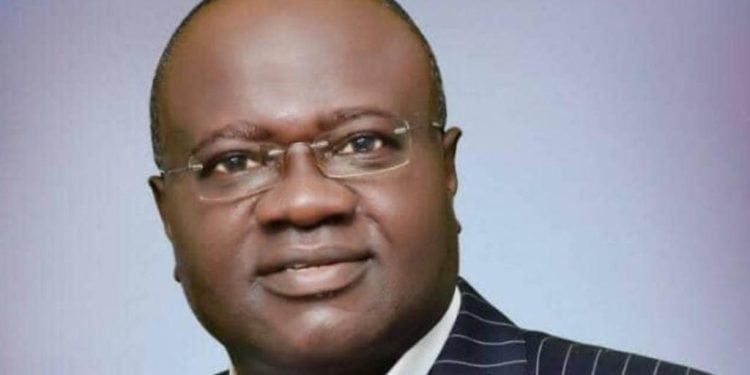The Minority Caucus in Parliament has raised serious alarm over what it describes as a troubling controversy surrounding the Black Volta gold mine concession in the Upper West Region, warning that the matter threatens to erode Ghana’s credibility as a stable, rules-based mining jurisdiction.
In a press statement dated July 16, 2025, the Minority said the ongoing dispute between Azumah Resources—an Australian-Ghanaian joint venture—and Engineers & Planners (E&P), a Ghanaian mining services firm allegedly close to the political establishment, represents a major test of the country’s mineral governance regime.
“We are not being melodramatic when we say that this affair poses grave concerns about potential and perceived conflicts of interest, weak regulatory accountability, and the slow corrosion of public confidence in institutions that manage our natural resource endowments,” said Kwaku Ampratwum-Sarpong, MP for Mampong and Ranking Member of the Lands and Natural Resources Committee, who signed the statement.
At the heart of the dispute is a “no-objection” letter allegedly issued by the Minerals Commission, reportedly allowing E&P to proceed with acquiring the concession from Azumah Resources—despite unclear evidence of ministerial approval. The Minority cited Section 14 of the Minerals and Mining Act, 2006 (Act 703), which requires explicit prior written approval from the Minister before any mineral right is transferred.
“It goes without saying that any purported ‘no-objection letter’ issued by the Minerals Commission must be grounded in law and subject to express prior approval by the Ministry of Lands and Natural Resources,” the statement added.
The Minority also raised concern over the involvement of the ECOWAS Bank for Investment and Development (EBID), which it claims may have entered into a credit arrangement with E&P without thoroughly vetting the legal legitimacy of the deal. The situation, they argued, is made worse by the fact that Ghana currently chairs both the EBID Board of Governors and Board of Directors.
“While these developments would normally be celebrated, the ongoing controversy threatens to douse everything… with regrettable suspicion,” the statement said.
The Caucus outlined five major areas of concern: legal and regulatory irregularities, policy coherence, reputational risk, economic consequences, and political accountability.
They warned that unresolved disputes over such a strategic asset risk damaging investor confidence, stalling economic development in the Upper West Region, and entrenching perceptions of political interference.
“No discussion of this matter is complete without addressing the elephant in the room—the perception that E&P may be exercising undue political influence due to the founder’s proximity to the political establishment,” the statement noted.
The Minority is demanding an urgent briefing from the Minister for Lands and Natural Resources and warned that if the minister’s answers do not fully resolve the matter, it will call for a formal parliamentary inquiry under Article 103 of the Constitution.
They have also posed six specific questions to the Minister, including when ministerial approval was granted for the concession, which party holds legitimate rights to the contested site, and what safeguards are in place to prevent state agencies from issuing documents that could mislead international stakeholders.
“The credibility of our mineral governance regime is on trial. Let this Parliament not be found wanting,” the statement concluded.


